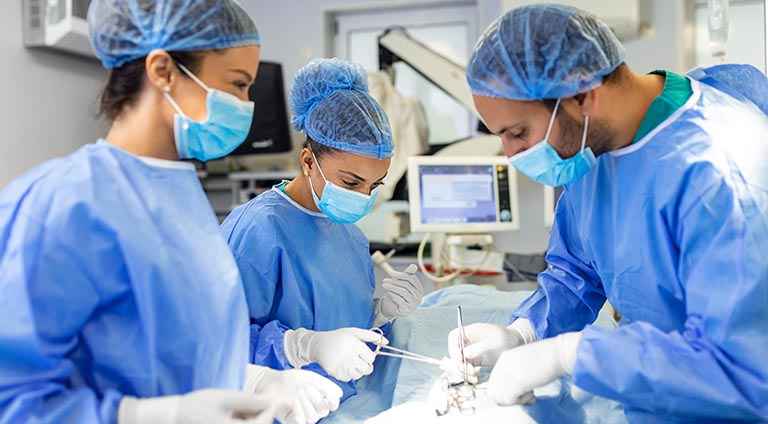The problem with treatment for fistula, ?????, or ????? in India, is the evasion of medical care. Patients often find the medical condition embarrassing and avoid seeking relief. There have been cases when patients have suffered for several years before asking for any medical intervention.
Fistula is not an embarrassing issue. For example, suppose one does not seek the help of a fistula surgeon to treat the problem. In that case, it can lead to severe complications such as bleeding, pain, fever, and even cancer in certain situations.
With advancements in medical science, surgeries have become the norm for patients dealing with fistula. It is a safe and effective way to address the problem of recurring fistula.
Fistulotomy is the name of the surgical procedure to treat a patient with a fistula. The fistula surgeon will open the fistula tract and clean the infection to heal it from within. Sometimes, they may have to take stitches to hold the wound together. In other situations, the fistula surgeon may keep it open to heal the wound naturally.
For a few patients, the opening and cleaning of the fistula may become insufficient. So, the fistula surgeon may perform a complicated procedure called fistulectomy to remove the area infected by the fistula and surrounding tissue from the body. Depending on the patient’s condition, the doctor may include a seton band to drain the fistula or a rectal flap for added coverage for the wound.
Fistulotomy and fistulectomy are both complicated surgical procedures. Post-op complications can include injury to the sphincter muscle, fetal incontinence, and fistula recurrence due to incomplete draining. In addition, it can affect your quality of life, work, and relationship, thus keeping you from leading a healthy life.
WHY IS A SURGICAL GASTROENTEROLOGIST NECESSARY FOR SUCCESSFUL FISTULA TREATMENT?
In addition to the prevailing stigma of ?????, or ????? in the Indian sub-continent, there is often the confusion about which doctor to visit for fistula treatment. It is difficult for a layperson to understand which medical professional to choose for treating the abnormal tunnel passage in the colorectal region. For example, many doctors mention they are fistula doctors or surgeons in Surat. However, the monikers/titles are not actual medical degrees but a way of making things simpler for patients. It helps them understand the kind of diseases the medical professionals treat.
Usually, a fistula doctor/fistula surgeon can be a gastroenterologist or a surgical gastroenterologist. Both study gastroenterology and treat medical conditions related to the GI tract.
However, when it comes to fistula treatment, it is best to visit a surgical gastroenterologist or a GI surgeon because they specialize in performing GI surgeries, including fistulotomy and fistulectomy. They are trained extensively in surgical procedures of the digestive system, including the rectal region. On the other hand, gastroenterologists are not equipped with surgical expertise.
And most often, fistula treatment involves a surgical intervention of some kind. Whether a GI surgeon chooses an open surgery, or recommends a non-surgical option, depends on the patient’s condition, previous medical interventions, and the spread of the disease. Modern-day GI surgeons also perform advanced laser fistula surgery to treat the fistula with the help of laser energy. Nevertheless, they are your best course of action because of their expertise and experience in surgical procedures.
You can be assured of the best course of treatment by choosing a GI surgeon for your fistula treatment. However, it is essential to prepare for the surgery. So, ask your GI surgeon the following questions to ensure your peace of mind.
- What are the possible treatment options for treating fistula?
- Do you need to have an emergency fistulotomy?
- What are the complications associated with a fistula removal operation?
- What are the common post-op restrictions?
- What is the recovery rate?
- Will you require any additional surgeries in the future?
- What is the cost of a fistula operation?
In addition to medical queries, it is best to discuss Mediclaim and insurance details with the GI surgeon to ensure that your insurance provider covers your costs. It is best to choose a medical expert who can address your concerns and provide assurance of your healthy recovery.





